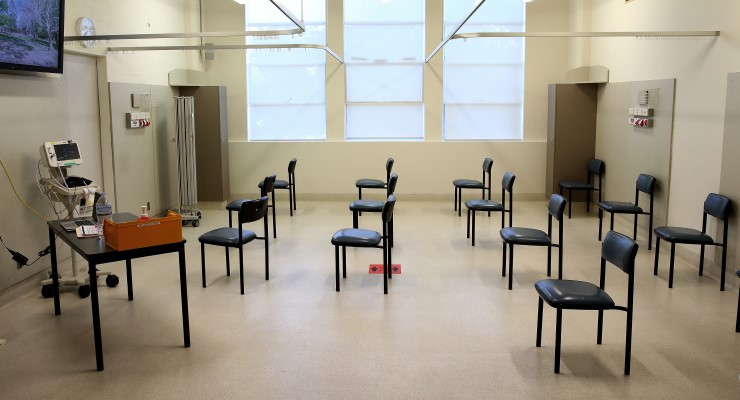
It’s been almost a month since Omicron was detected in Botswana, and its subsequent spread to more than 30 countries. The COVID-19 variant, which is expected to become the dominant strain around the world and which has a staggering 50 mutations compared with Delta, sent scientists into a frenzy trying to figure out how the mutations would stand up against vaccines.
As of this morning, the results are in: preliminary data has found those who have been vaccinated with two doses of Pfizer had 40 times fewer COVID-19 neutralising antibodies against Omicron, meaning they are less protected.
Fortunately, booster shots could offer improved protection — but new research shows fewer Australians are willing to go in for a third dose.
How bad is it?
The preprint study, published in the journal Nature, had a small sample size — just 12 people who had received their second Pfizer dose about a month earlier. Omicron had reduced the number of virus-blocking antibodies, but those who had previously been infected with another strain of COVID had more protection.
Sydney University infectious diseases expert Professor Robert Booy tells Crikey these results don’t necessarily translate into real-world results.
“When you measure antibodies against a virus, you have only a rough correlate of the level of human protection,” he said. “What you really need is real-world evidence.
“Taking antibodies from people who were vaccinated six months ago and testing them against the virus, we know protection against catching the disease is less — but for Delta, the protection against severe disease remains high.”
Research has also found Omicron appears to cause less serious disease, although more research is needed. If it is more infectious but less severe, that could be a good thing — causing asymptomatic infections and boosting natural immunity to future variants.
There are also initial reports Omicron is infecting children at a higher rate than previous strains, though again with mild infections. Earlier this week Pfizer was approved for children aged five to 11, with paediatric vaccinations expected to begin from January.
What about boosters?
Boosters have been on the cards for a long time: Pfizer was early to tell buyers third shots were likely to be needed. Although AstraZeneca can be given as a booster in some circumstances, the third dose of an mRNA vaccine appears to offer more efficacy when combined with AstraZeneca.
Booy said Omicron showed how important booster doses are: “We need more evidence [about the variant] but so far, it’s all a pointer to the benefit of boosters.”
Australia has secured 85 million doses to be used as booster shots — much more than the country needs. But not everyone is willing to get one. Uptake of the first two doses has been very high in Australia — almost 90% of the population — new research from ANU shows just 71.9% of vaccinated adults would definitely get a booster.
People less likely to line up for a booster are males, younger Australians, those who didn’t finish high school and speak a language other than English. But the main reason is altruistic: most of those surveyed said they wanted extra doses to go to other countries.
Study co-author Professor Nicholas Biddle said the study showed the importance of targeted messaging.
“Not all Australians have the same willingness to receive a booster vaccine,” he said. “Evidence-based targeted interventions for these groups may be necessary to ensure that immunity disparities do not emerge in 2022 and beyond.”
For the first two doses, hesitancy has been falling, although uptake remains low in areas that didn’t experience significant COVID outbreaks. This morning the Northern Territory and Queensland hit their 80% double dose vaccination rate.
Will you get a booster shot? Let us know your thoughts by writing to letters@crikey.com.au. Please include your full name if you would like to be considered for publication in Crikey’s Your Say column. We reserve the right to edit for length and clarity.








Crikey is committed to hosting lively discussions. Help us keep the conversation useful, interesting and welcoming. We aim to publish comments quickly in the interest of promoting robust conversation, but we’re a small team and we deploy filters to protect against legal risk. Occasionally your comment may be held up while we review, but we’re working as fast as we can to keep the conversation rolling.
The Crikey comment section is members-only content. Please subscribe to leave a comment.
The Crikey comment section is members-only content. Please login to leave a comment.